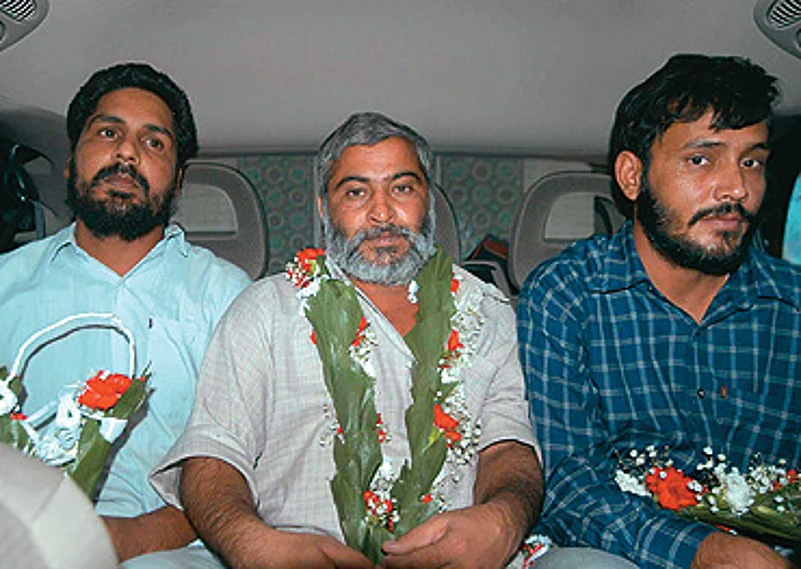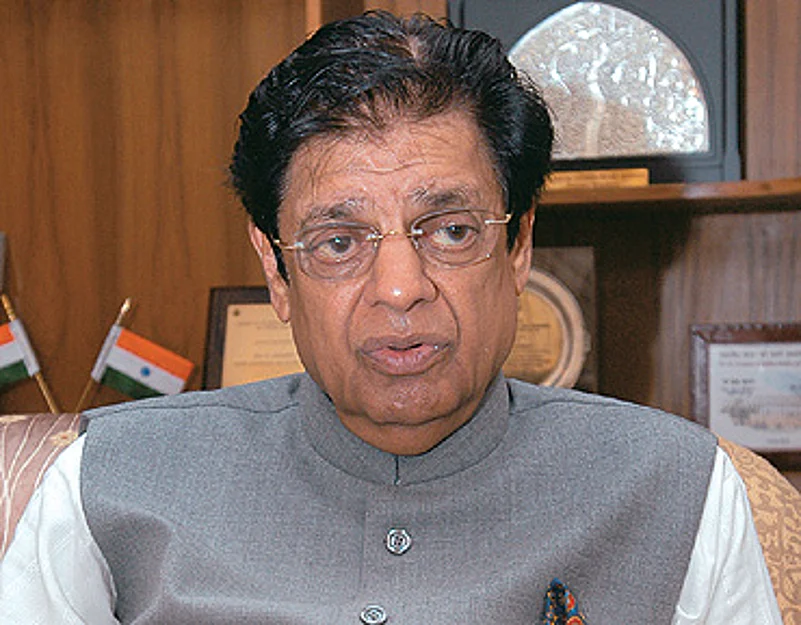- Following the kidnapping of three Indian truckers by Iraqi militants in 2004, the UPA government secretly negotiated with the abductors
- A three-man team was sent to Baghdad to talk to the kidnappers
- The three Indians were released in return for a ransom of $5,00,000
- Indian negotiators persuaded Kuwaiti Gulf Links (KGL), the company which employed the truckers, to pay this sum
***

The three-man Indian negotiating team, led by veteran diplomat Talmiz Ahmed, was sent to Baghdad on August 1, 2004. While the role of Ahmed and his associate Zikrur Rehman, a deputy secretary in the Union ministry of external affairs, have been acknowledged by the Indian government, the identity of the third team member or the part he played in the negotiations had been a secret so far. Sudarshan's book reveals he was an officer of the deputy director level in the Intelligence Bureau, known for his extensive knowledge of Islamic fundamentalism and hostage negotiations.
The abduction of the truckers took place just as the then foreign secretary Shashank was getting ready to hand over charge to Shyam Saran. "While there may be many views on the subject, it is a fact that the Government of India has to look after its citizens," Shashank told Outlook. "So the Indian team did what it had to do and it proved to be a major test of our diplomatic skills in a changing global scenario."
Accessing 'Top Secret' correspondence, Sudarshan in his book reveals that the abducted Indian truck drivers, along with the 6,000 other Indians in Iraq, were actually helping the American occupation of Iraq. Perhaps unwittingly, but they were putting their lives in peril when they were transporting electronic communications equipment meant for the American troops. During the negotiations, the Indian team realised that the Iraqi abductors were aware of the role played by the Indians in the US occupation.
Ahmed and his team had only a few contacts to start with when they reached Baghdad. The Iraqi militants were negotiating with KGL through local tribal leader Sheikh Duleimi. The latter was also in talks with Union minister of state for external affairs E. Ahamed's contact in Qatar, Sheikh Abderrehman Al Mahmoud, chief justice of the Sharia court. The entire negotiation centred around Duleimi-KGL and the abductors. But even after 15 days of negotiations, there was no breakthrough. The kidnappers, who had initially demanded $5 million as ransom, later scaled it down to $2.5 million. But KGL said it could not pay more than half a million. Duleimi slowly pulled out of the negotiations.

| ANATOMY OF AN ABDUCTION by V. Sudarshan Penguin; Pages 219; Price: Rs 295 |

The visit to the salon paid off. A few days later, a gentlemen calling himself Abu Walid and an advocate linked to the Iraqi resistance visited the Indian embassy and offered to be an intermediary between the Indian team and the abductors. Then followed hectic negotiations. The KGL management was persuaded to pay $5,00,000 as ransom. It also promised to discontinue its operations in Iraq. Finally, on September 1, a month-and-a-half after they were abducted, the hostages were released. According to Sudarshan, much of the credit for the successful negotiations goes to Rehman. His understanding of the language and culture of the Arab world proved to be crucial in the release of the truckers.
But should the Indian government have negotiated with the militants? Ask members of the intelligence community and they tell you that when it comes to saving lives, the government can deviate from its stated position. "While it is the policy of this government as well as others not to negotiate with terrorists, in a democracy, you have to look at all possible solutions and then play it by ear," former RAW chief A.S. Dulat told Outlook. In his foreword to the book, Dulat notes that "the book underscores the importance of low-profile yet flexible negotiations". Adds former IB chief Ajit Doval, who also played a crucial role in resolving the hostage crisis: "In statecraft, there can't be any fixed positions. In the end, if all ends well, it justifies the means."
The abducted truck drivers—Antaryami, Tilak Raj and Sukhdev—were lucky that the government chose to rescue them even though they were not high-value targets or vvips. It was minister E. Ahamed who took the initiative to secure the release of the three. "Look at it this way," says Dulat. "There are reports that the Lashkar was planning to kidnap Rahul Gandhi. God forbid, if that were to happen, wouldn't the government negotiate? By that logic, what's wrong in saving the lives of any Indian citizen?"
This doesn't stop detractors from saying that India should refrain from such negotiations since all it does is send the message that the state is soft and can be held to ransom. Cold logic, but not very useful when you have a Kandahar staring you in the face.


























